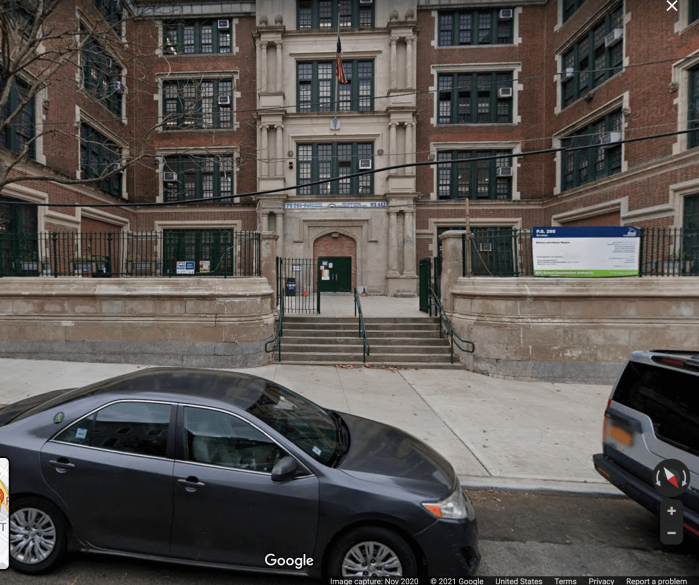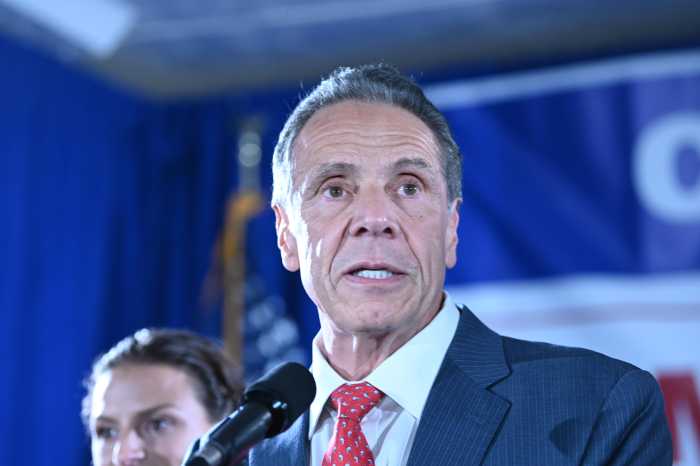A three-judge panel of the Virginia Supreme Court on August 30 upheld a trial court’s order that Loudoun County School Board must reinstate Leesburg Elementary School gym teacher Tanner Cross, who was placed on paid leave after he spoke out at a school board meeting against a proposed policy that would require teachers not to misgender transgender students.
The court agreed with the trial judge that Cross’ statement probably enjoyed freedom of speech clause protection under the Virginia Constitution, applying principles developed by the US Supreme Court under the First Amendment concerning constitutional protection for public employee speech.
A recent Virginia statute mandated that the state’s Department of Education “develop and make available to each school board model policies concerning the treatment of transgender students in public elementary and secondary schools.” The statute also requires school boards to adopt policies “that are consistent with but may be more comprehensive than the model policies developed by the Department of Education.”
On May 25, the board held a public meeting at which it discussed a proposed policy that would require school staff to respect students’ names and pronouns and allow transgender students to use their own names and pronouns. It would also allow students to use school facilities and participate in extra-curricular activities consistent with their gender identity.
Cross, who had taught at Leesburg Elementary for eight years, was strongly opposed to the proposed policy, and he attended the public meeting to speak during the “public comment” period. He claimed to be speaking “out of love for those who suffer with gender dysphoria,” referencing a “60 Minutes” feature about “young people who transitioned” and then “felt led astray because of lack of pushback, or how easy it was to make physical changes in their bodies in just three months. They are now de-transitioning,” he said. He stated opposition to the proposed policy because “it will damage children, defile the holy image of God.”
Cross said, “I’m a teacher but I serve God first. And I will not affirm that a biological boy can be a girl and vice versa because it is against my religion. It’s lying to a child. It’s abuse to a child. And it’s sinning against our God.”
Cross’s comments generated discussion among Leesburg parents on social media, and after one parent called the school authorities to ask that Cross not have any contact with her child, a supervisor told Cross that he was being placed on administrative leave with pay pending an “investigation.” Then the assistant superintendent sent a letter to Cross stating he was under investigation “for allegations he engaged in conduct that had a disruptive impact on the operations of Leesburg Elementary,” and that he was banned from Loudoun County Public Schools property unless he got permission from the Leesburg Elementary principal. He was also informed he would not be permitted to speak on this topic at future board meetings, and he was relieved from his normal duty of joining with other teachers to greet students as they arrived at the school. All Leesburg Elementary parents and staff received an email announcing his suspension.
Cross obtained representation from Alliance Defending Freedom (ADF), a litigation organization that frequently opposes LGBTQ rights on religious grounds. ADF filed a state court lawsuit claiming that the Loudoun County Board’s actions violated Cross’s free speech rights, and sought an immediate order that he be reinstated while the case is litigated. The trial court issued the order, and the school board appealed. Such pre-trial orders are reviewed for “abuse of discretion” by a three-judge panel of the seven-member state Supreme Court.
Under a 1968 US Supreme Court decision, Pickering v. Board of Education, a public employee who speaks as a citizen on a matter of public interest is protected under the First Amendment from retaliation by their government employer unless their speech disrupts the operation of the employee’s workplace. The Virginia Supreme Court pointed out that it has generally followed federal precedents in interpreting the free speech provision of the state constitution.
In this case, relying on parental discussion on social media and the phone calls that the district eventually received from several parents asking that their children not be exposed to Mr. Cross, the school board claimed that “disruption” of the elementary school justified its action of suspending Cross. It also pointed to his statement signaling that he could not comply with the requirement in the proposed policy that teachers use transgender students’ desired names and genders. The board had ultimately adopted the proposed policy, but there is no indication that there were any transgender children in Cross’ gym classes, although one of the parents who called to complain in response to Cross’ remarks is a transgender individual who reported that Cross’ remarks had upset her children.
The trial judge concluded that the school board had not presented sufficient evidence of actual disruption of the elementary school’s operations to justify suspending Cross for an “investigation” of his remarks, and the Virginia Supreme Court agreed, in a unanimous opinion by three of its members, Justices Arthur Kelsey, Stephen R. McCullough, and Teresa M. Chafin.
Cross’s state court lawsuit relies on Article I, Section 12 of Virginia’s Constitution, which essentially protects the same right of free speech as the federal First Amendment. The court has adopted a “two-step inquiry” to determine whether the government’s action violates this provision, asking first whether the public employee’s speech was on a matter of public concern, and second whether the employee’s interest in making his public comments outweighed the government’s “interest in providing effective and efficient services to the public,” which is essentially the same test the US Supreme Court applies under its Pickering decision.
Cross made his statements at a public board meeting where the proposed transgender policy was being discussed. The court quoted a decision by the US Court of Appeals for the Fourth Circuit, which has jurisdiction over federal appeals from Virginia, holding that “both the teacher and the public are centrally interested in frank and open discussion of agenda items at public meetings.” Furthermore, the court pointed out, “In addition to expressing his religious views, Cross’ comments also addressed his belief that allowing children to transition genders can harm their physical and mental wellbeing. This is a matter of obvious and significant interest to Cross as a teacher and to the general public.”
And, of course, the court noted that Cross was “opposing a policy that might burden his freedoms of expression and religion by requiring him to speak and interact with students in a way that affirms gender transition, a concept he rejects for secular and spiritual reasons.” Thus, the court concluded that Cross’ interest in making his points at the meeting was “compelling.” Indeed, the court concluded on this point, saying, “We believe Cross has a strong claim to the view that his public dissent implicates ‘fundamental societal values’ deeply embedded in our Constitutional Republic.”
As against this, the court asserted that the defendants had “not identified an abuse of discretion in the circuit court’s conclusion that [the board’s] interest in disciplining Cross was comparatively weak.” In particular, the court rejected the board’s argument that the trial judge did not give adequate weight to the board’s contention that Cross’s statements had and would continue to have a disruptive effect on Leesburg Elementary School’s operations. The Supreme Court panel agreed with the lower court that the evidence of disruption was weak, and it pointed out that the board’s argument that Cross had announced that he would not comply with the policy if it was enacted was not raised in the letter sent to Cross announcing his suspension.
Cross had followed up his public comments with an email to the board and the school superintendent in which he stated his unwillingness to comply with the trans-inclusive policy. But, the court pointed out, the board took no action based on that email, because, as a private communication rather than a public statement, it had not caused any particular disruption at the school. The court also commented that the board had presented “no evidence that it would have been problematic or administratively taxing to accommodate the parents who requested Cross not teach their children,” or that dealing with “managing fallout from Cross’ public comment” had taken up any significant amount of the principal’s time.
“The only disruption that Defendants can point to is that a tiny minority of parents requested that Cross not interact with their children,” wrote the court. “However, the Defendants identify no case in which such a nominal actual or expected disturbance justified restricting speech as constitutionally valued as Cross’ nor have they attempted to explain why immediate suspension and restricted access to further Board meetings was the proportional or rational response to addressing the concerns of so few parents.”
The court also noted two judicial opinions that would support the conclusion that “Cross has a potentially successful claim.” In one, Meriwether v. Hartop, the Cincinnati-based US Court of Appeals for the Sixth Circuit found that an Indiana public university violated a professor’s First Amendment free speech rights when it disciplined him for misgendering a student in class. In another, while finding that a teacher did not have a First Amendment right to disobey a school’s transgender policy, a federal trial court in Indiana observed that “the teacher is not asserting that he was disciplined for criticizing or opposing the policy.”
Thus, the court’s opinion is limited in focusing on the right of the teacher to state his views at a public Board meeting on a matter that was being considered by the board, without holding that Cross would have necessarily enjoyed constitutional protection from discipline if he actually disobeyed the policy by misgendering students at the school, which would necessarily raise questions under a federal statute, Title IX of the Education Amendments of 1972.



































